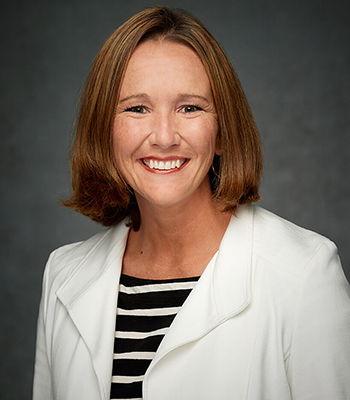Mary and Joseph’s Examples Teach Us about Identity, Purpose, and Belonging
Contributed By Lori Newbold, Young Women general board

In this scene depicted in the Church’s Bible Videos, Mary listens to the angel Gabriel as he foretells Christ’s birth.
Article Highlights
- Knowing who we are gives us peace and courage to accomplish what the Lord has asked us to do.
- Everyone’s mission and purpose is significant.
- We will find our identity, purpose, and belonging in Him as we continue with faith.
“While most of us will not have heavenly beings appear to us and call us by name, the God of heaven knows every single one of His children by name.” —Lori Newbold, Young Women general board member
Related Links
At the heart of what many people are searching for in the world today is a need to know their identity, understand their purpose in life, and feel a sense of belonging as they go about their mortal journey. We have learned that understanding each of these three needs is a “line upon line, precept upon precept” process (2 Nephi 28:30).

Lori Christine Newbold of the Young Women general board.
During this Christmas season, we want to focus on the lives and experiences of Mary and Joseph to see what we can learn about identity, purpose, and belonging.
Identity
“At the heart of all we do in Young Women is our desire to help you gain unshakable faith in the Lord Jesus Christ and a sure knowledge of your divine identity as a daughter of God” (Bonnie H. Cordon, “Beloved Daughters,” Ensign or Liahona, Nov. 2019, 67).
In a world that is continually seeking to confuse individuals about their divine identity, these six words have become more meaningful to us than ever: “I am a child of God” (Hymns, no. 301). When we stop to really consider the truth behind that statement, it is overwhelming and inspiring. Knowing who we are gives us peace and courage to accomplish the things the Lord has asked us to do. This knowledge also influenced many of those we love and honor in the scriptures.
Let’s consider the following examples together.
“Hail, thou that art highly favoured, the Lord is with thee: blessed art thou among women” (Luke 1:28), said the angel Gabriel to Mary. How did she feel after this greeting? Luke tells us she was troubled by this at first—a feeling many of us can relate to. The Lord reassures her immediately of her identity when Gabriel, this time calling her by name, says, “Fear not, Mary: for thou hast found favour with God” (Luke 1:30).

Joseph Brickey’s oil painting No Room finds Joseph and Mary without lodging shortly before the Savior’s birth. Image courtesy of Deseret Book.
How many times did she need to draw upon that experience in the following months and years as she faced the incredible responsibility of raising the Son of God? Consider for a moment how this affected her daily prayers from this moment on—How many times did she replay those words in her mind? What did she feel every day of her pregnancy as she considered the identity of the child she was carrying and what His role was in her divine identity?
Then think of Joseph and what it was like for him to have the responsibility to be the earthly father of the Savior of all mankind. What might we learn about his character that revelation came for him “while he thought on these things”? What feelings came for him when he heard the angel say to him, “Joseph, thou son of David”? (Matthew 1:20). What was it like for him to have an angel of God call him by name or to receive an assurance to “fear not,” followed by a declaration of who this baby really was?
What was it like for him to learn of the role of Jesus Christ to “save his people from their sins”? (Matthew 1:21). How many times did Joseph go back to these moments to learn of his identity? How many times might he have looked into Jesus’s eyes and received a reassurance that he was the man that God trusted to provide temporally for His Only Begotten Son?

As young women continue forward with faith in Jesus Christ, they will find their identity, purpose, and belonging in Him, teaches Lori Newbold of the Young Women general board.
While most of us will not have heavenly beings appear to us and call us by name, the God of heaven knows every single one of His children by name. If we listen carefully, we can feel Him call us by name. We can see Him daily reassuring us of our purpose and identity. We can accomplish His work with great power as we remember, “I am a child of God.”
Purpose
“Knowing your identity and purpose will help you align your will with the Savior’s” (Bonnie H. Cordon, “Beloved Daughters,” Ensign or Liahona, Nov. 2019, 67).
A natural tendency of human nature is to compare. Some may read the examples of Mary and Joseph and think, “Yes, I can see Him reassuring them because their mission and purpose were more significant than mine.”
It is important that we do not get caught in this trap when we consider our own purpose and mission in this life. Because “the worth of souls is great in the sight of God” (Doctrine and Covenants 18:10), everyone’s mission and purpose are significant, including the opportunity to lead a human soul—even our own—to Jesus Christ.
Mary knew she had a purpose. What new things did she learn about her purpose with each passing day? What did she learn from Gabriel? What did she learn when the shepherds came? Or when at the temple with Anna and Simeon? Or when the Wise Men came? Or later, when they left the Savior behind and found Him in the temple teaching the lawyers? What did she learn as “Jesus increased in wisdom and stature, and in favour with God and man”? (Luke 2:52). What did she learn while He hung on the cross?
We can ponder similar things about Joseph. How did Joseph’s understanding of his own purpose change him? What was his daily life like helping raise the Redeemer of the world? How did every interaction with Jesus deepen Joseph’s sense of purpose?

In this scene from one of the Church’s Bible Videos, an angel comes to Joseph in a dream and tells of Christ’s birth.
Every one of God’s children has a significant role and purpose in His plan. And every interaction we have with the Savior can clarify and deepen our own sense of purpose.
One central purpose we are each given is to come unto Christ and to help others do the same (see Moroni 10:32). Every day we have the opportunity to “be . . . an example of the believers” (1 Timothy 4:12) and bring ourselves and others closer to Him.
Belonging
“Our classes must be sanctuaries from the storms, secure places of love and belonging” (Bonnie H. Cordon, “Beloved Daughters,” Ensign or Liahona, Nov. 2019, 68).
Every human soul has the need to feel a part of something. We all want to feel accepted and a part of something bigger than ourselves. Heavenly Father has placed us in families and organized church groups to help foster this feeling. And still, too many wonder if they have a place or are accepted among the group. How can we help them?
When it comes to seeking to belong, sometimes we get it backwards. In our desire to be accepted by others, we are willing to do what is necessary—at times to our own detriment—to feel that we belong.
What did Mary and Joseph learn about the feeling of belonging as they watched stranger after stranger approach them in order to worship their Son? They found their belonging in Heavenly Father and His Son, and, as a result, people came to them to find Him. The shepherds came to them. The Wise Men came to them. Because Mary and Joseph knew they belonged to the Father and the Son, they could help others find Him.
Our relationship with our Savior helps us find confidence in any social circle. At times, it will also help us to not find a place in circles that wouldn’t draw us closer to Him. And when we don’t find a place in those circles, we can look for individuals within those circles who are ready to come to Christ and invite them into circles that are centered on Him. As we find our belonging in Jesus Christ, we can’t help but want others to know how to find belonging in Him as well.
We all have an opportunity to continue to grow from “grace to grace” (Doctrine and Covenants 93:13), just as the Savior did. Similar to Mary and Joseph, because our learning process is iterative, the Lord will continue to teach us as we allow Him. As we continue forward with faith in Jesus Christ, we will surely find our identity, purpose, and belonging in Him.

In this scene depicted in the Church’s Bible Videos, Joseph and Mary hold the baby Jesus on the night of His birth.
